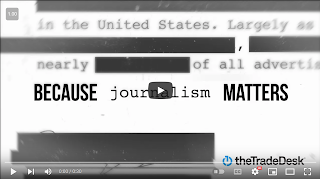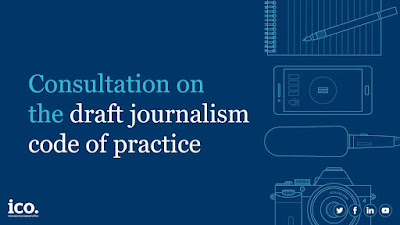A proposal published for public comment would change the name of the Massachusetts Board of Bar Overseers to the "Board of Bar Oversight" to avoid connotations of slavery in the term "overseer."
The new name means the "BBO" will keep its popular initialism. The BBO was formed in 1974, so the "overseer" usage originated independently of the negative connotation. It seems what's changed in the last half century is sensitivity to language, for better and for worse.
 |
| Frederick Douglass and grandson Joseph Douglass, 1894 Smithsonian NMAAHC |
The word "overseer" has a pernicious history in our country, tied inextricably to chattel slavery. On southern plantations, an overseer was the slaveowner's delegate in day-to-day governance, trusted to enforce order and obedience. Overseers were the most visible representatives of white supremacy. As defined in the Online Etymology Dictionary, an overseer was "one who has charge, under the owner or manager, of the work done on a plantation." In autobiographies by slaves such as Frederick Douglas [sic] and Solomon Northup ("Twelve Years a Slave"), overseers were described as heartless, brutal and cruel. They were an inevitable and indispensable product of an economy built on human chattel. As noted by University of Louisville president Neeli Bendapudi, "The term overseer is a racialized term. It hearkens back to American slavery and reminds us of the brutality of the conditions and treatment of black people during this time." We agree with this statement.
I don't. To "racialize" is "to give a racial character to: to categorize, marginalize, or regard according to race." I agree that Bendapudi racialized the term. The BBO did not, before now. But therein lies the power of a passive structure, "is ... racialized," allowing one to accuse without responsibility to prove.
The BBO moreover is almost irresponsibly selective in its sourcing. First, the Online Etymology Dictionary is a project of a Pennsylvania writer, Douglas Harper. It's good and interesting to read; I'm not meaning to denigrate Harper's labor of love. But I'm not sure any one person's internet project should be anyone else's first stop for denotation, especially in a legal context. The BBO's sourcing is on par at best with high-school-term-paper standards.
Second, "one who has charge ... of the work done on a plantation" is not exactly what the Online Etymology Dictionary says. Rather, here's the entry in full:
late 14c., "supervisor, superintendent, one who looks over," agent noun from oversee (v.). Specifically, "one who superintends workmen;" especially with reference to slavery, "one who has charge, under the owner or manager, of the work done on a plantation."
So it's not true, even in the source referenced, that "overseer" on its face is defined as, or means, a plantation supervisor. The meaning arises in the especial context of slavery.
Maybe I'm a little sensitive to the whole thing because I once served as an "overseer" in my church. The BBO doesn't mention that the word has any meaning outside of slavery, much less that it has ancient and Biblical origins.
Episkopos (ἐπίσκοπος) in Ancient Greek translates literally as onlooker, or overseer, and that's the word used in the Iliad, the Odyssey, and the Bible. Epi (ἐπί) is a preposition meaning on or upon, and skopos (σκοπός) means to watch or look intently. Skopos is used variously (and in the Iliad) to refer to a lookout, a guardian, or a spy or scout.
In Ancient Greece, an episkopos referred specifically to a kind of imperial agent sent by Athens to distant municipalities to make sure they paid their taxes (Balcer 1977). (An interesting point of historical-comparative legal studies is that having a highly functional tax system is a common feature of successful ancient civilizations, from the Greeks to the Aztecs.)
In the Iliad (22:255), A.T. Murray translation, Homer refers to the gods as witness to an agreement, using episkopoi (ἐπίσκοποι),
the plural, to refer back to the gods. Murray beefed up the translation to say "witnesses and guardians of our covenant," thus articulating the added connotation of safeguarding.
In the Odyssey, also the Murray translation, below, Homer used episkopos more abstractly to indicate a role of authority:
τὸν δ᾽ αὖτ᾽ Εὐρύαλος ἀπαμείβετο νείκεσέ τ᾽ ἄντην:
‘οὐ γάρ σ᾽ οὐδέ, ξεῖνε, δαήμονι φωτὶ ἐίσκω
160ἄθλων, οἷά τε πολλὰ μετ᾽ ἀνθρώποισι πέλονται,
ἀλλὰ τῷ, ὅς θ᾽ ἅμα νηὶ πολυκλήιδι θαμίζων,
ἀρχὸς ναυτάων οἵ τε πρηκτῆρες ἔασιν,
φόρτου τε μνήμων καὶ ἐπίσκοπος ᾖσιν ὁδαίων
κερδέων θ᾽ ἁρπαλέων: οὐδ᾽ ἀθλητῆρι ἔοικας.
Then again Euryalus made answer and taunted him to his face: "Nay verily, stranger, for I do not liken thee to a man that is skilled in contests, such as abound among men, but to one who, faring to and fro with his benched ship, is a captain of sailors who are merchantmen, one who is mindful of his freight, and has charge of a home-borne cargo, and the gains of his greed. Thou dost not look like an athlete."
In none of several English versions of this passage did I find episkopos translated directly. Poetically inclined translators such as Murray carried over the subject "captain" with either a pronoun or an implied subject. "Captain" here is "ἀρχὸς," or "chief." So it looks like Homer saw ἀρχὸς and ἐπίσκοπος as functionally equivalent in this context.
 |
| Shepherd in 1 Peter 2:25 © Saint Mary's Press, licensed for non-commercial use |
Other usages are more concrete. In Acts 20:28 (NIV), Paul admonishes disciples: "Keep watch over yourselves and all the flock of which the Holy Spirit has made you overseers. Be shepherds of the church of God, which he bought with his own blood" ("προσέχετε οὖν ἑαυτοῖς καὶ παντὶ τῷ ποιμνίῳ ἐν ᾧ ὑμᾶς τὸ πνεῦμα τὸ ἅγιον ἔθετο ἐπισκόπους ποιμαίνειν τὴν ἐκκλησίαν τοῦ θεοῦ ἣν περιεποιήσατο διὰ τοῦ ἰδίου αἵματος"). Similar usages appear in Philippians 1:1, 1 Timothy 3:2, 1 Titus 1:7, and Hebrews 13:17.
The BBO needs to be called out here for shoddy work (really, misspelling Frederick Douglass?) and results-oriented reasoning. The board is myopically intent on sacrificing a word on the pyre of cancel culture—a move indicative more of wanting to look righteous than of wanting to be righteous. I might rather, as a general rule, strive for education and enlightenment, at least as a first-order response.
Yet, as it happens, I agree with the BBO's conclusion and proposal. Despite the board's woke pandering, the risk is significant that "overseer" will import for some hearers a connotation that should be foreign to the board's role. For me, it's not about "racialization"; it's about relationship.
When I moved to New England and started to learn the ropes of the local legal culture, I bristled at the term "Bar Overseers." To be fair to Massachusetts, I have had the same feeling in other jurisdictions about boards of attorney and judicial "discipline."
 |
| "Overseer" and boy in Yazoo City, Miss., yarn mill, 1911. U.S. Library of Congress |
That doesn't mean that the time never comes when persistent or willful misconduct requires a firm response; the profession owes its highest duty to the public. But using terms such as "overseer" and "discipline" has the unintended consequence of encouraging officeholders to misunderstand their roles. Lawyering and judging are among jobs that endow persons with authority over others, whether through power, like policing, or through access to knowledge. Some people attracted to these jobs are prone to use, or abuse, their power for its own sake. Those same people might gravitate to a job such as "overseer" or arbiter of "discipline" for the wrong reasons.
I was more amenable to the term "overseer" in my church, because the biblical usage is, or should be, utterly alien to abuse of power. Similarly, a church speaks of spiritual "discipline" with only the affirmative connotation of accountability to God. As a church overseer, I felt the weight of guardianship in the term. Being an overseer was a stern reminder of my responsibilities to others and sometimes, too often, of my own duties and failures of spiritual discipline. Anyone truly called to church leadership is humbled by the call, not lured by empowerment.
Even so, when my board of overseers overhauled the church constitution, we changed to "elder" leadership. At the same time, we changed the governance model. We studied and prayed over many church governance models. The Bible says remarkably little about specifics, so the art of church governance becomes part spiritual endeavor and part sociological experiment. We designed a variation on governance that we believed would work well for our congregation, better, at least, than what we had in an aging constitution.
"Elder" aligned better with our new model, which emphasizes biblical knowledge, experience, and mentorship. There's nothing technically deficient in the term "overseer" for our new model, and we were not afraid of "racialization." It was just semantics. Different Christian writers have committed to different terms, so those terms now carry connotations of the writers' observations and recommendations.
So connotation, like context, matters. And given the connotation of barbarism that even sometimes attaches to "overseer," especially in secular contexts, the BBO's modest proposal is sensible.
I simply would prefer that the proposal were backed by an evenhanded and honest analysis. Then we might be able to say, more modestly, that we are just pushing pause on "overseer": giving its deplorable connotation time to fade in our social consciousness, rather than committing a word of ancient import to the dustbin because of a modern-era abomination.












